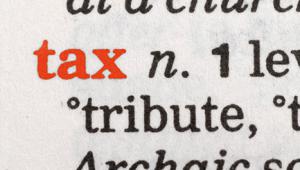The project, which was launched with the Organisation for Economic Co-operation and Development yesterday, at the UN's conference on Financing for Development (FfD) in Addis Ababa, aims to deploy tax audit experts to work alongside local officials in developing countries across the globe to boost tax audit capacity.
The UN and the OECD are currently piloting projects and international tax workshops in Albania, Ghana and Senegal.
According to the UN, evidence from Colombia has shown tax audit advice and guidance can result in substantial revenue gains, increasing from $3.3m in 2011 to $33.2m in 2014.
UNDP administrator Helen Clark said: “Effective domestic resource mobilisation is at the core of financing for sustainable development, but efforts to raise domestic resources are often constrained by tax evasion and avoidance, and by illicit financial flows.
“Tax Inspectors Without Borders can support countries to realise the post-2015 agenda.”
OECD Secretary-General Angel Gurría added: “The new partnership between the OECD and UNDP on Tax Inspectors Without Borders will significantly extend the global reach of existing efforts to build audit capacity while sending a strong message of international support to developing countries.”
Meanwhile, the International Monetary Fund and the World Bank are to launch a new initiative designed to help developing countries boost their tax systems, they announced at the conference on 13 July.
The IMF said raising additional revenues would allow developing countries to fill financing gaps and promote development.
The initiative aims to design improved diagnostic tools to help member countries evaluate and strengthen their tax policies.
“A strong revenue base is imperative if developing countries are to be able to finance the spending they need on public services, social support and infrastructure,” said IMF managing director Christine Lagarde.
“But experience shows that with well-targeted external technical support and sufficient political will, it can be done.”
World Bank president Jim Yong Kim added: “We very much want to help developing countries raise more revenues through taxes because this can lead to more children receiving a good education and more families having access to quality health care. If everyone pays their fair share – developing countries can close their financing gaps and promote inclusive growth.”
The World Bank and the IMF will continue to work in close collaboration with other development partners, including the OECD, in expanding their work in the tax area.








